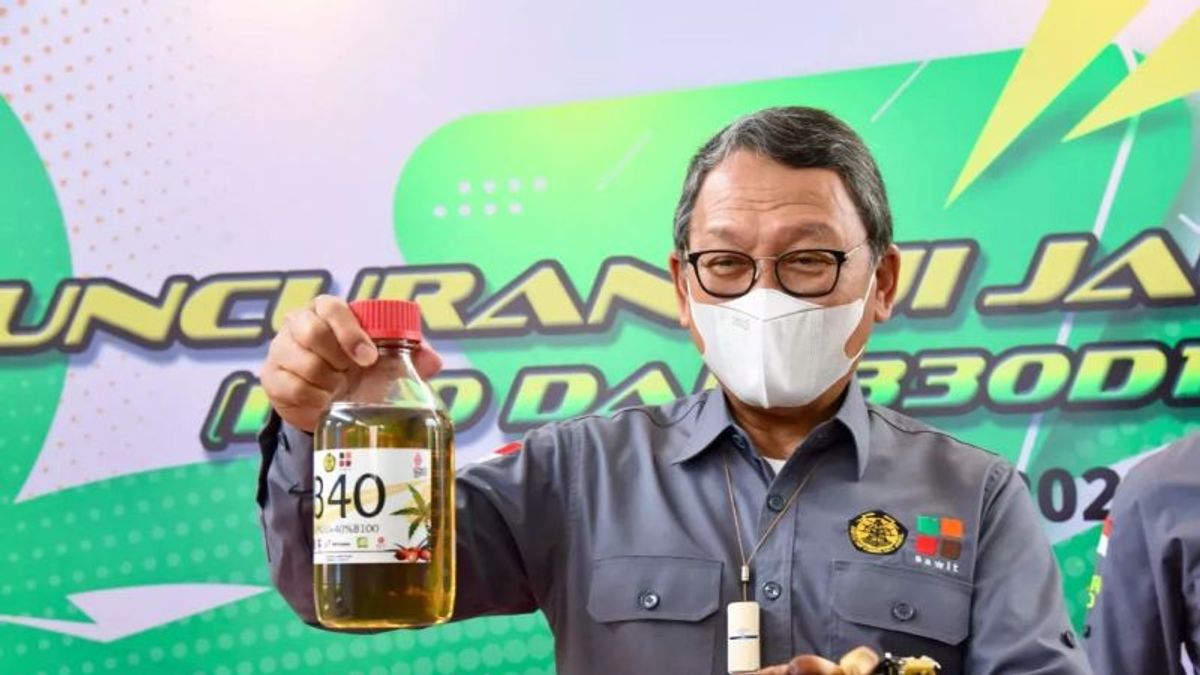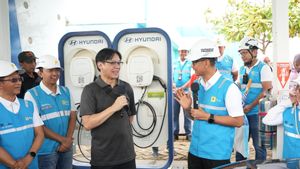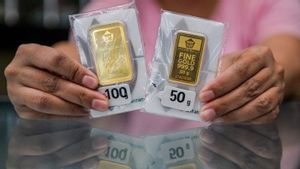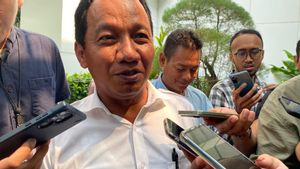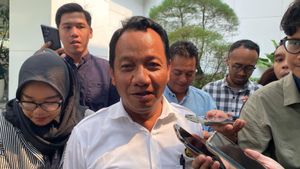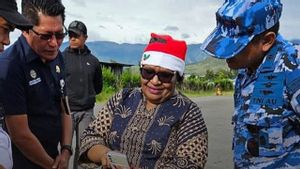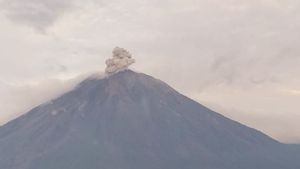JAKARTA - The government through the Ministry of Energy and Mineral Resources (ESDM) targets the road test of mixing Nabati Fuel into Solar Oil Fuel by 40 percent (B40) which is currently underway to be completed in August 2022.
Previously, the government succeeded in mixing Nabati Fuel (BBN) into Solar Fuel of 30 percent (B30).
"Road Test B40 is targeted for completion in December 2022, this road test is to produce technical recommendations for the implementation of the B40 policy," said Edi Wibowo, Director of Bioenergy in an official statement, Tuesday, September 27.
Edi added that the B40 road test was carried out through 2 (two) stages of testing the fuel mixture type, namely, B30D10 with a mixed formula of 30 percent Biodiesel (B100*) + 10 percent of Diesel Nabati/Diesel Biohidrocarbons/HVO (D100) + 60 percent Solar Oil (B0), and B40 with a mixed formula of 40 percent Biodiesel (B100*) + 60 percent Solar Oil (B0).
"As for the Biodiesel Specification (B100*) referring to the proposed Technical Committee 27-04, the Liquid Bioenergy, with the improvement of water level parameters which were originally a maximum of 350 ppm changed to a maximum of 320 ppm, monoglyceride levels which were originally a maximum of 0.55 percent of the masses to a maximum of 0.5 percent of the mass, the stability of oxidation which was originally at least 600 minutes to a minimum of 720 minutes," added Edi.
Edi revealed, in this test, the test vehicles used by 3 diesel-engine vehicle brands <3.5 tons each with 2 units, and 3 diesel-engine vehicles with 2 units each.
"At the beginning of Road Test B40 there was a challenge in the form of procuring spare parts after the initial overhaul, but we can convey that currently all vehicles have carried out road tests," said Edi.
To catch up and reach the target set in December 2022, an additional distance and route is implemented, namely, for test vehicles <3.5 tons of distance which was originally targeted at 560 km/day to 650 km/day with a route to change to Balitsa-Tol Cileunyi-Ciamis-Kuningan-P3GL-Pemalang (turn input)-Subang-Balitsa.
Meanwhile, the 3.5 tonne trial vehicle was originally targeted at 400 km/day to 550 km/day with the route changing to Balitsa-Pasteur-Cikampek-Cipali-P3GL-Tegal (backputer)-Cipali-Subang-Balitsa
The tests carried out during Road Test B40 included handling and analyzing fuel consumption, testing fuel quality quality and lubricants, performance testing on Chassis Dynamometer, testing Merit Rating vehicle components, testing fuel storage stability, and testing of the startability and precipitation of test fuels.
This B40 Road Test was carried out by the Center for Oil and Gas Testing (Lemigas) by involving the KEBTKE Survey and Testing Center and the National Research and Innovation Agency (BRIN) through funding the Palm Oil Plantation Fund Management Agency (BPDPKS).
For fuel B0 and HVO provided by Pertamina Group (PT Pertamina International Refinery) and B100 by APROBI.
"We routinely monitor and evaluate to collect suggestions and input on progress and temporary results on the tests that have been carried out," said Edi.
"We appreciate the efforts and support of all parties who continue to support testing and energy transition efforts through mixing biodiesel BBN. The Ministry of Energy and Mineral Resources continues to be committed to supporting the B40 implementation plan through facilitation and coordination of the things needed with the relevant K/L and stakeholders," he concluded.
Indonesia is currently still the most advanced country in implementing a combination of Biodiesel BBN.
With the B40 implementation plan that is in sight, once again Indonesia is at the forefront of the use of Biodiesel BBN.
In addition to supporting the contribution of renewable energy to the national energy mix, the B40 implementation plan will also certainly have a positive impact on foreign exchange savings due to declining diesel oil imports, increasing CPO added value, opening up jobs, and reducing greenhouse gas emissions.
For the B30 program in 2022, it is targeted to be distributed by biodiesel of more than 10 million kl, which can save foreign exchange of 7.82 billion US dollars and reduce greenhouse gas emissions by 26.95 million tons of CO2e and create jobs for more than 1.2 million people, both on farm and off farm workers.
The English, Chinese, Japanese, Arabic, and French versions are automatically generated by the AI. So there may still be inaccuracies in translating, please always see Indonesian as our main language. (system supported by DigitalSiber.id)
